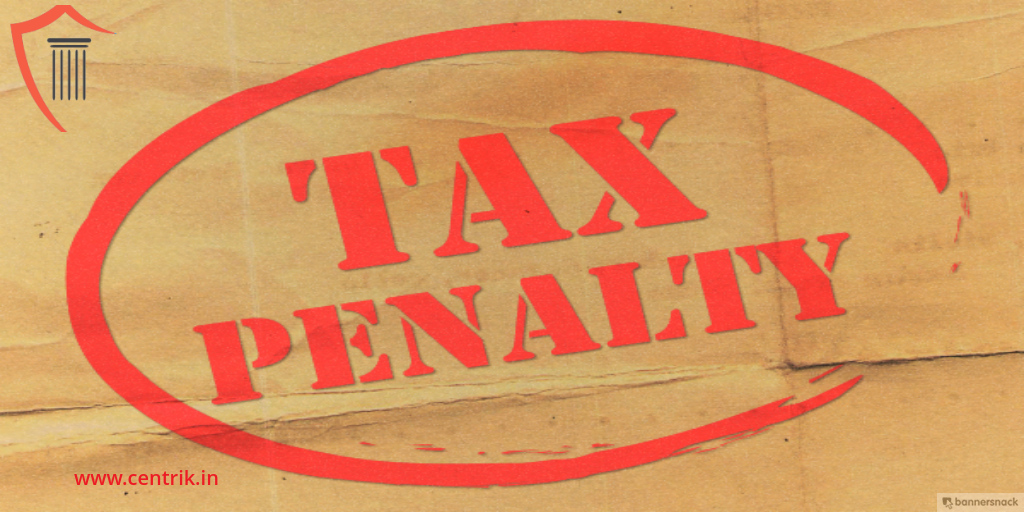
We are hearing a lot about 200% penalty on undisclosed income, particularly after the announcement by Hon’ble Prime Minister for discontinuation of currency notes of Rs. 500/- and Rs. 1000/-. It has triggered various kinds of misunderstanding and rumours about the rate and incidence of penalty on (i) undisclosed income or (ii) furnishing inaccurate particulars of income, as prescribed under income tax laws. In this article, we have tried to clarify the income tax laws on this matter. For ease to understand, we have categorised the relevant laws in the following headings;
A. OVERVIEW
The penalty provisions for non-disclosure of income or furnishing inaccurate particulars thereof, have been changed by Finance Act, 2016. New Section 270A (applicable from assessment year 2017-18 i.e. financial year 2016-17 onward) has been inserted under Income Tax Act, 1961 to provide penalty on (i) under-reporting and (ii) mis-reporting of income. Let’s understand the relevant points.
B. KIND OF OFFENSE
Section 270A deals with two specific offenses viz.
(I) Under –Reporting of Income:- A person shall be considered to have under-reported his income if;-
a) Income determined by ITO (income tax officer), is greater than exemption limit where ITR has not been filed.
b) Income determined by ITO, is greater than income disclosed, if return is filed
c) Income determined by ITO is greater than previous assessment.
d) Due to Income determined by ITO, the disclosed loss by person is reduced or loss is converted to profit.
e) The minimum alternate tax (MAT) as determined by ITO, is greater that disclosed MAT.
(II) Misreporting of income
The mis-reporting of income shall be;
a) Misrepresentation or suppression of facts
b) Failure to record investment in the books of account
c) Claim of expenditure not proved by evidence
d) Recording of any false entry in books of accounts
e) Non- recording of particular of any income in books of accounts
d) Failure to report any international transaction
There may be different kind of situations to attract penalty provisions. Some of the general example may include;
– Non-disclosure of income in your ITR if it exceeds the exemption limit
– Non- disclosure of gain on sale of capital assets
– Non- disclosure of cash or cheque deposit in bank account
– Cash earned but not offered for tax in your ITR,
– Sales made but not disclosed in ITR
And other kind of cases, relating to non-disclosure of income or furnishing misleading information for source and quantum of income, etc
C. RATE OF PENALTY
(I) Under-reporting of Income – 50% of the tax levied on such under-reported income
(II) Mis-reporting of Income – 200% of the tax payable on such mis-reported income
D. IMMUNITY FROM IMPOSITION OF PENALTY
As per section 270AA of Income Tax Act, the assessing officer, may grant immunity from above penalty if the following conditions are satisfied:
(I) If tax as determined by ITO has been paid within the time limit as given in the demand notice, and
(II) No appeal has been filed against the order
The application for waiver shall be made within 1 month from the end of the month in which such order for tax has been passed.
E. OPTION AFTER PENALTY ORDER
I) Appeal u/s 246A of Income Tax Act, before Commissioner of income tax (Appeal) within 30 days from date of receipt of order, or
II) Application u/s 264 before Commissioner of Income tax for revision of order.
CRUX
The decision regarding levy of penalty and rate of penalty would depend on the fact and circumstances of the case. The people at large is requested to consider all the facts and circumstances before preparing their details.
CA Amarpal, FCA, DISA
Founder & CEO
Centrik Business Solutions Pvt. Ltd
Note – This article is based on my personal interpretation of related laws and opinion which may differ person to person. We shall not be responsible for any kind of loss or mimisunderstanding based on this article.




 join For Updates
join For Updates